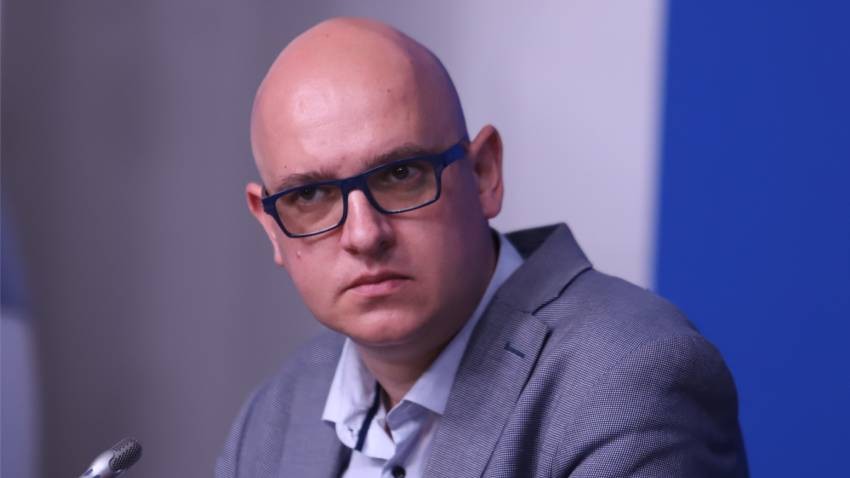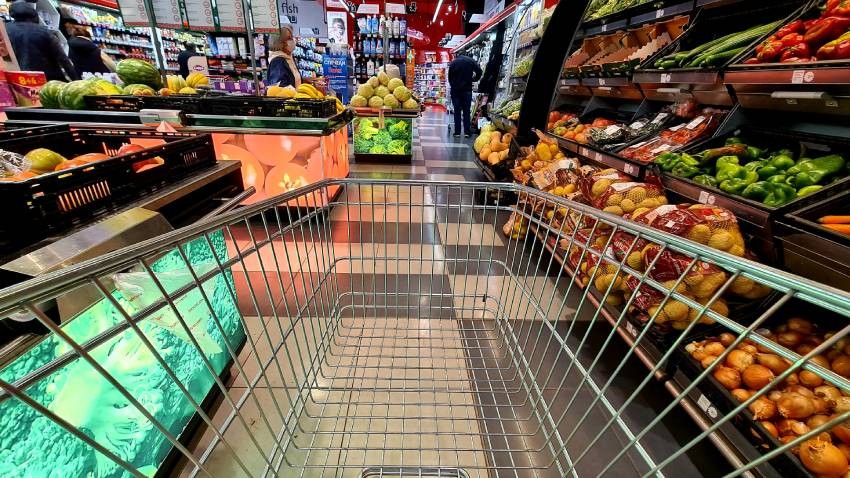A major strike organized by trade unions blocked the whole of Belgium a day ago and the situation in neighboring Greece is similar. Thousands of people protested there demanding wage rise. In Greece, the minimum monthly salary is 713 euros, but inflation there is 12% and this has become a reason for civil discontent.
In Bulgaria, there has not been a mass national protest with social demands for years, but the high inflation and the low wages of employees give reasons to the two largest trade unions in Bulgaria, CITUB and "Podkrepa", to organize national protest actions on Friday - November 11. Over 25 cities and regional centers will participate in the protest. In Sofia, workers will gather at 10 a.m. in front of the National Assembly building.
"Low incomes are the main driver of social tension escalation, as union demands for rising incomes through the adoption of Budget 2023 are not being heard," says Dr. Todor Kapitanov, national secretary of the Confederation of Independent Trade Unions in Bulgaria.

"We see that at this moment there is no intention to increase the minimum wage or to impose a non-taxable minimum wage as early as 2023. The workers face a situation in which prices are skyrocketing, inflation is almost 20%, but salaries have not increased. These are the important points in Bulgaria's agenda - incomes and the coming harsh winter, which causes worries to all working Bulgarians."
During the election campaign in October, CITUB held a series of meetings with leaders of parliamentary groups and major political forces, in order to make them acquainted with trade unions’ main demands. "We deliberately launched the campaign during the pre-election period to make it clear to everyone that when they enter the parliament, we cannot give them 100 days of tolerance to make the changes. This is the reason why we are starting the protest now. We expect the parties to show responsibility and meet the requests of CITUB and Podkrepa unions, Dr. Todor Kapitanov says and adds:

"Inflation in Bulgaria is officially 18.7% but we see that the prices of basic goods and services have risen by over 40%. It is no secret that Bulgarians have been in the category of the working poor for many years, but now we are not just working poor, but we are hard working and the poorest at the same time. As a result of the low wages, we see high employee turnover in every sphere. In many cases, workers leave the country, but the amount of work does not decrease and those who stay work more. A single person often does the work of others who are not available at the moment. That is why violations related to excessive overtime work have become more frequent. There are many problems when it comes to labor rights and incomes."
Some employers tend to react to inflation by increasing the salaries of workers but all employees in state administrations are at risk because of the lack of a state budget for 2023, Todor Kapitanov also says:
"Teachers, librarians, employees in the state agencies, the security sector and the entire administration where all payments are tied to the budget, are among those at risk. Salaries must be raised, otherwise protests will erupt as people will not tolerate being squeezed by these low incomes.”
English: Al. Markov
Photos:The Republic of North Macedonia is in seven days of mourning. The town of Kočani, where a fire in a disco club took the lives of at least 59 people – mostly young people and children, aged 14 to 25 – is shrouded in silence today. "The..
Ireland's blessings come in many forms - funny, formal, heartfelt, and wise. On St. Patrick's Day, I'm sharing here my favourite Irish blessing. "May the road rise to meet you, may the wind always blow at your back, may the sun shine warm on your..
The Little Miss and Mister Galaxy 2025 contest kicks off in Bansko, bringing together talented children from 4 to 17 years old. Contestants from countries including Bulgaria, Brazil, Macedonia and Georgia will showcase their skills in interviews,..
An international conference “AI and education: The road to innovative teaching and learning” brings together 50 teachers from the Bulgarian schools..
In 2024, Bulgaria has 15,737 foreign students, making up 8.6% of all current students in the country. By comparison, this share has doubled over the..
Divers will clean the seabed around the port of Sozopol today, reports BTA. "Since 2018, we have been doing the cleaning, completely voluntarily, with..

+359 2 9336 661
